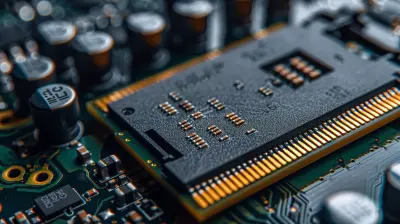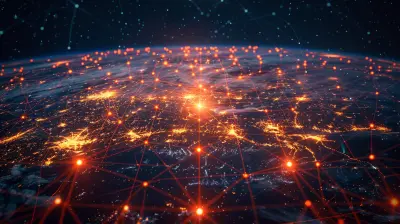The Intersection of Gaming and AI: What’s Next?
8 August 2025
Gaming has come a long way from the pixelated graphics of the early days to the ultra-realistic, AI-driven experiences we see today. But what happens when artificial intelligence starts playing a bigger role in shaping the future of gaming? The combination of AI and gaming is an exciting frontier, one that’s transforming how we play, build, and experience games.
So, what’s next in this ever-evolving relationship between gaming and AI? Let’s dive in.
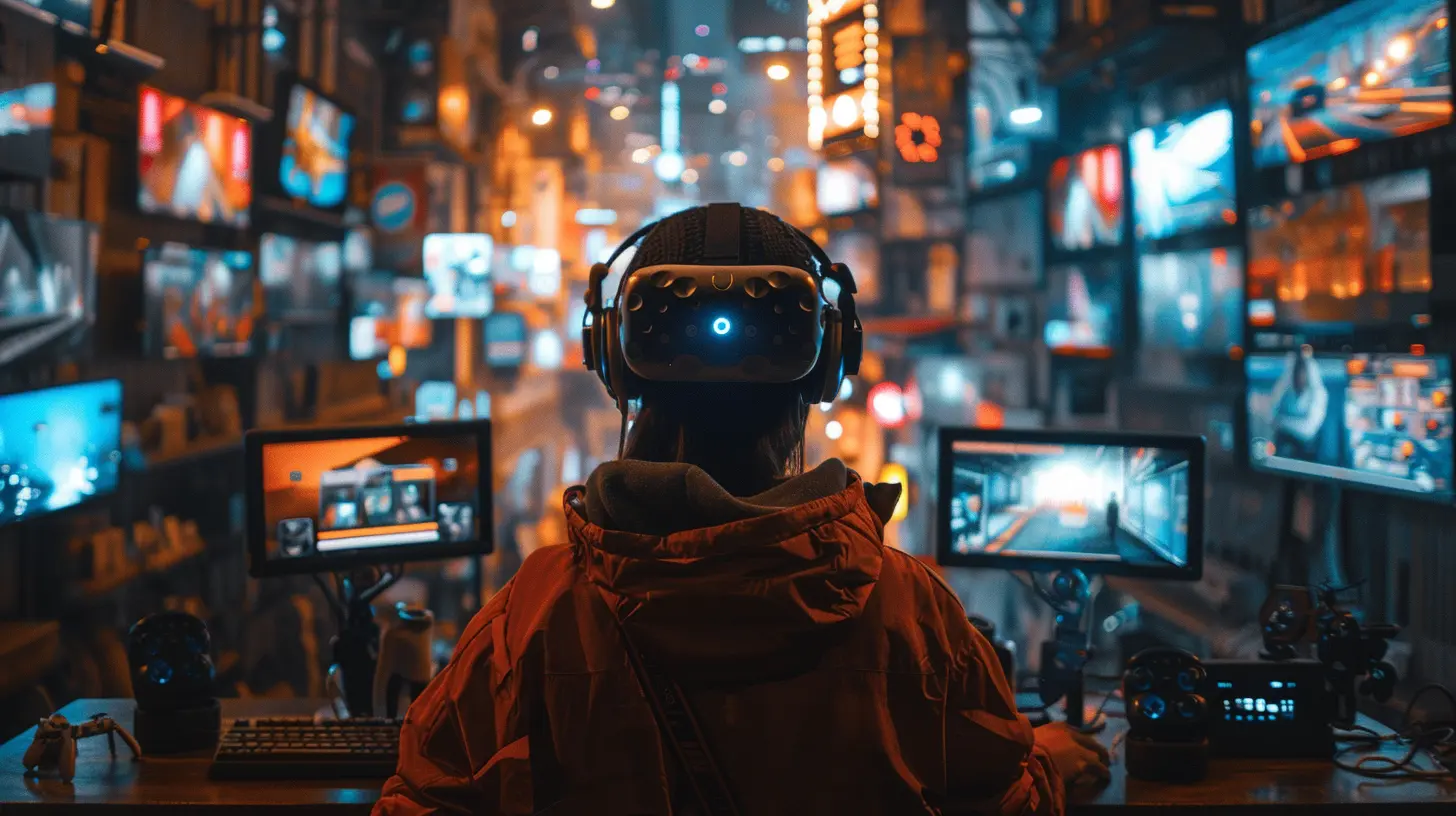
AI-Powered NPCs: Smarter, More Realistic Interactions
Gone are the days when non-playable characters (NPCs) repeated the same three dialogue lines on a loop. Thanks to AI, NPCs are becoming more lifelike, capable of adapting to player choices and behaviors.Imagine walking into a game city where shopkeepers remember your past purchases, enemies adjust their strategies based on your gameplay style, and allies react dynamically to in-game situations rather than following a scripted routine. AI-driven NPCs can make game worlds feel more alive and immersive, offering players a unique experience every time they play.
Procedural Storytelling & Dynamic Dialogues
With AI-driven natural language processing, developers can generate dynamic dialogues that make interactions feel more organic. Instead of relying on pre-written scripts, AI can generate responses on the fly based on the context of the conversation. Think about RPGs where your decisions truly shape the storyline in unpredictable ways—this is the future AI is making possible.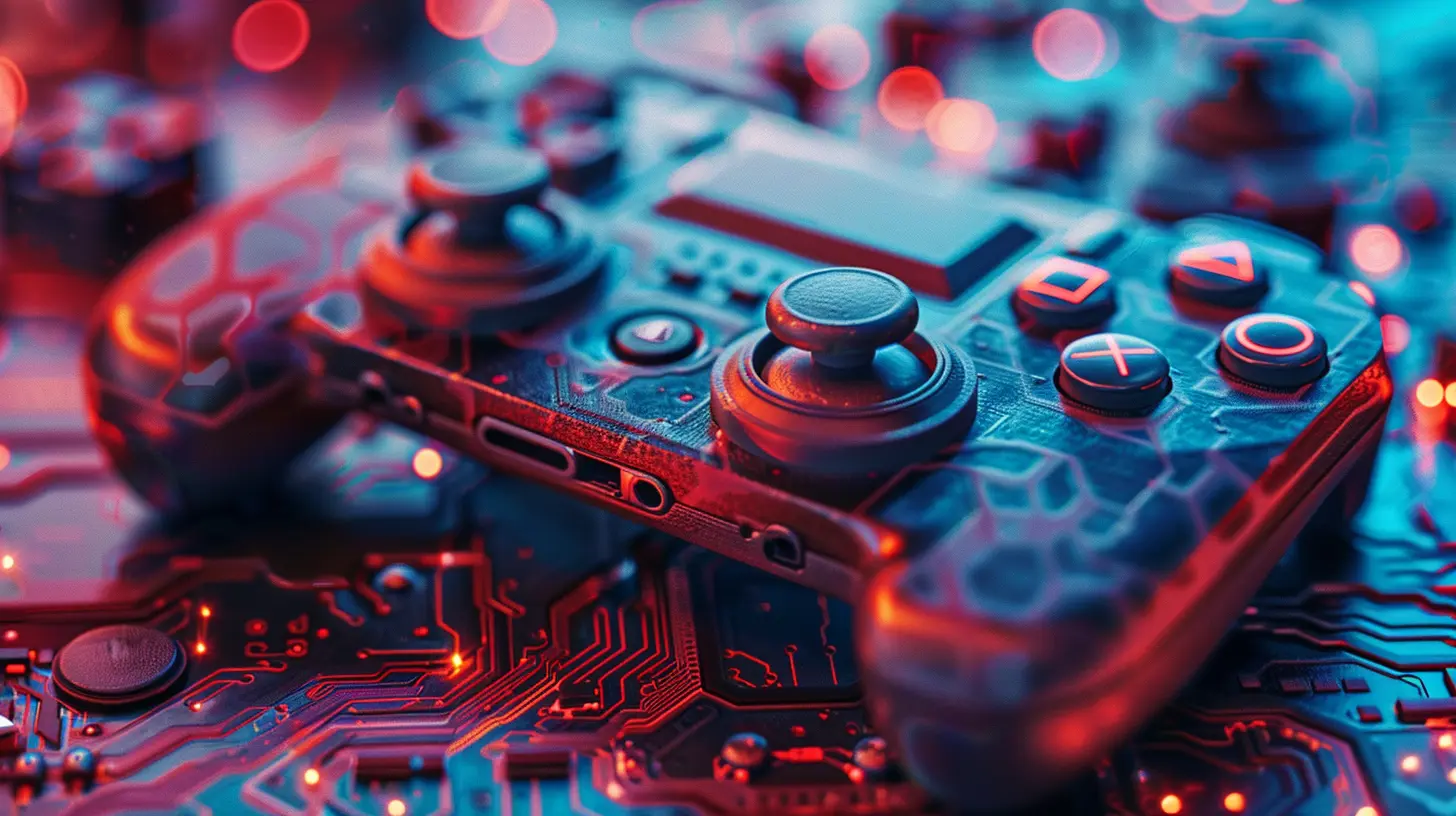
AI-Generated Game Content: Endless Possibilities
One of the most fascinating areas where AI is making an impact is content generation. Game developers are using AI to create entire game worlds, levels, and even storylines. This not only speeds up the development process but also allows for infinite replayability.Procedural Level Generation
AI has taken procedural level generation to new heights. Games like No Man’s Sky and Minecraft use AI to create seemingly infinite worlds, ensuring that no two players' experiences are exactly alike. This approach reduces the manual workload for developers while offering players new adventures every time they explore the game.Adaptive Game Design
AI can also analyze player behaviors and adjust difficulty levels accordingly. If a player struggles with a particular section, AI can modify the game’s difficulty without making it feel forced. This keeps players engaged, preventing frustration or boredom.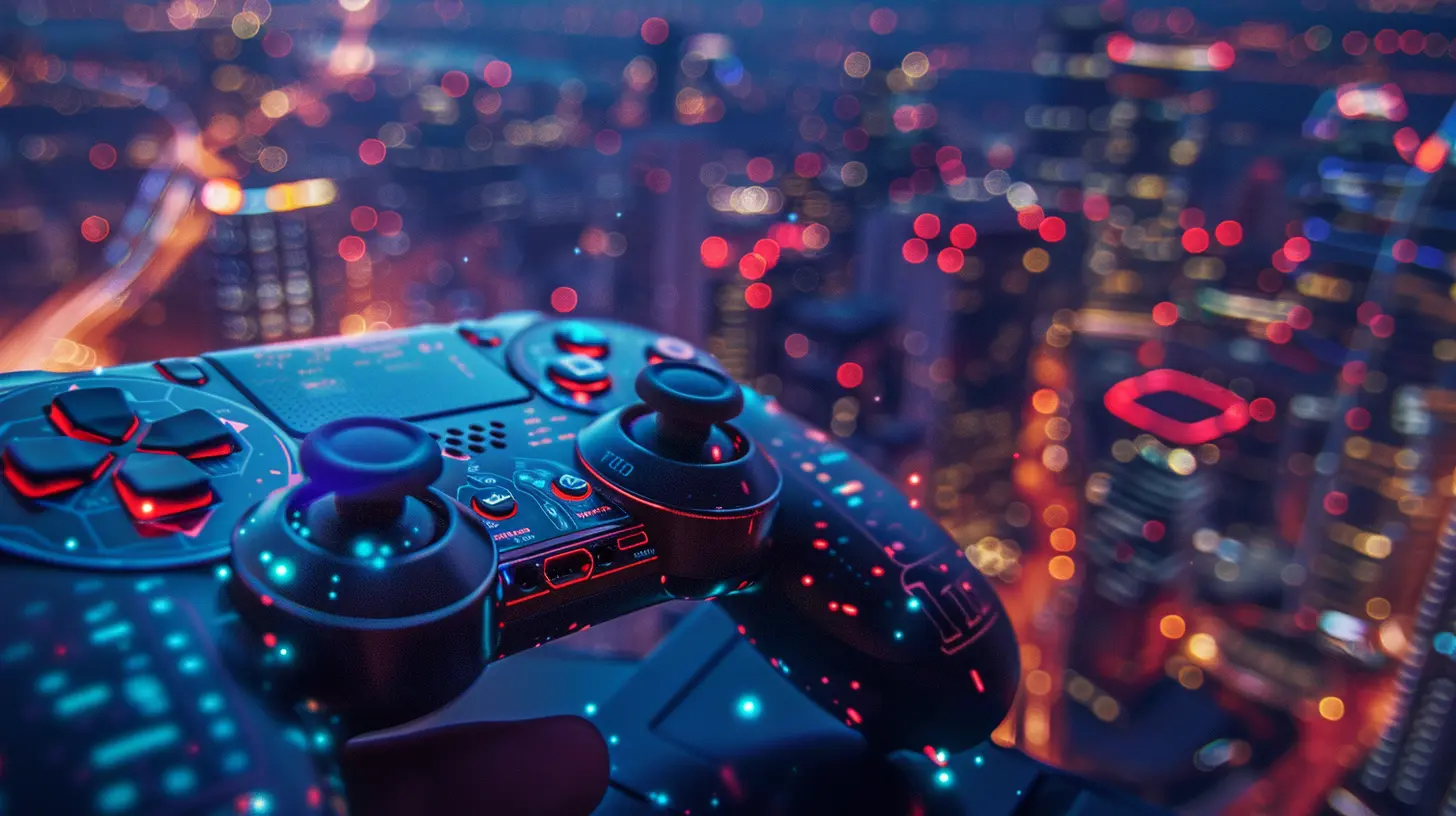
AI-Powered Game Testing: Faster, More Efficient Development
Game development is a massive undertaking, and testing is one of the most time-consuming parts. AI is stepping in by automating game testing, reducing human workload, and catching bugs faster than ever before.Automated Bug Detection
AI-powered bots can playtest games thousands of times faster than human testers, identifying potential issues that might have been missed. This speeds up the debugging process and improves overall game quality before release.Playstyle Prediction
AI can analyze how players engage with certain mechanics and predict which features might be frustrating, confusing, or underutilized. Developers can then fine-tune gameplay based on these insights to create a smoother, more enjoyable experience.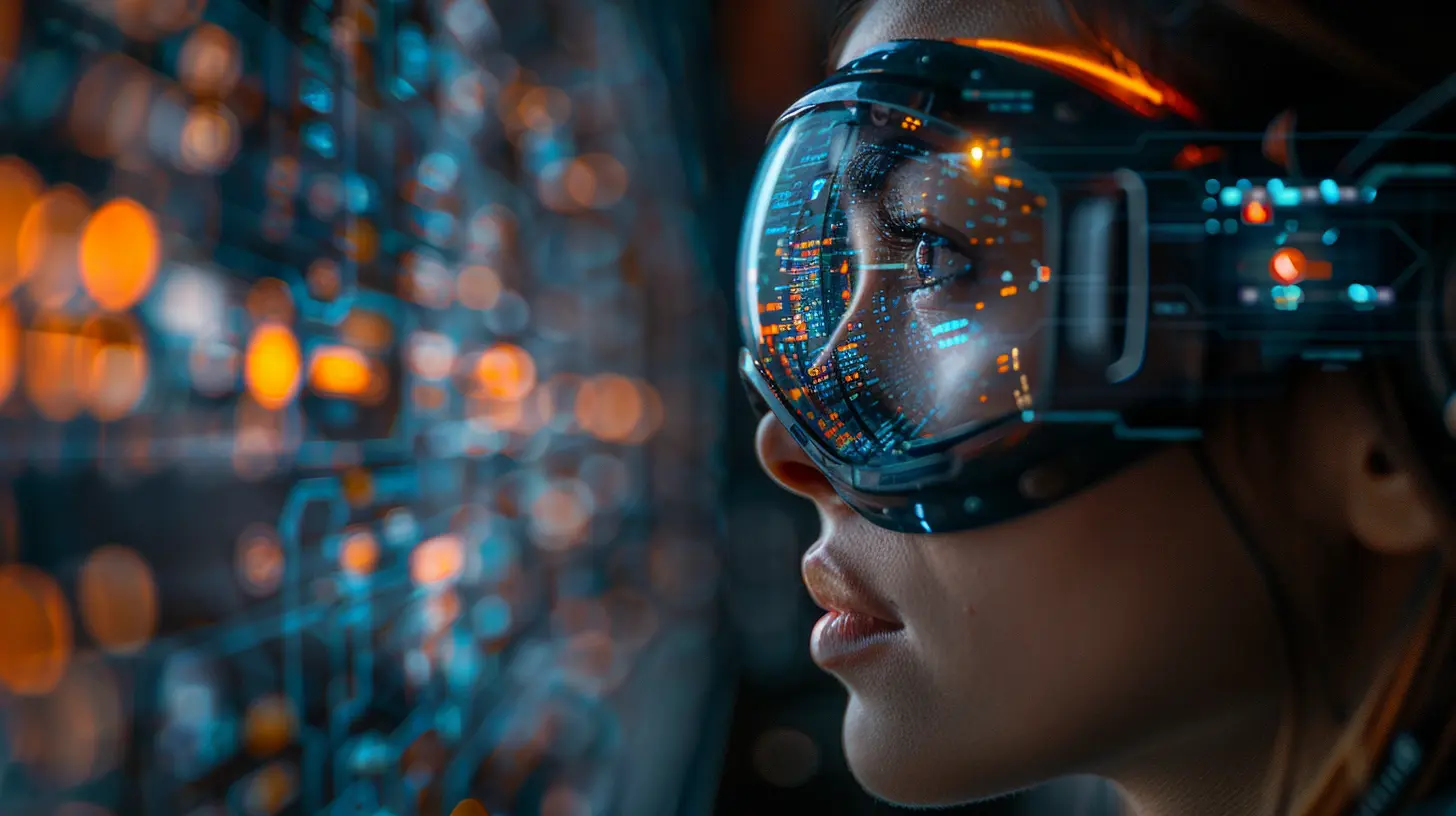
AI in Esports and Competitive Gaming
The world of esports has exploded in popularity, and AI is playing a growing role in shaping competitive gaming. From coaching tools to advanced analytics, AI helps both professional and casual gamers improve their skills.AI-Powered Coaching
AI-driven coaching platforms analyze gameplay data and provide real-time feedback on strategies, aiming, movement, and decision-making. Whether you're trying to climb the ranks in League of Legends or improve your aim in Counter-Strike, AI-driven tools can give you the edge needed to compete at higher levels.Smarter Matchmaking
We’ve all had frustrating experiences with unbalanced matchmaking in online games. AI can help optimize matchmaking systems by analyzing player skill levels, playstyles, and even in-game behaviors to ensure fairer and more enjoyable matches.AI in Game Streaming and Content Creation
The rise of game streaming platforms like Twitch and YouTube Gaming has fueled another area where AI is making an impact. AI-driven tools are helping content creators produce high-quality videos, engage with audiences, and even generate real-time highlights.AI-Generated Highlight Reels
Imagine an AI that automatically detects the best moments from your gaming session—whether it’s an epic kill streak, an insane clutch, or a hilarious fail—and compiles them into a highlight reel. AI is making this a reality, saving creators hours of video editing.AI-Powered Moderation
Toxicity in online gaming is a well-known issue. AI-driven moderation tools are being used to detect and filter out hate speech, abusive comments, and toxic behavior in real time, making gaming communities safer and more inclusive.
The Future: AI-Generated Games?
One of the most exciting (and slightly terrifying) possibilities is AI developing entire games on its own. While we're not quite there yet, AI tools are already assisting developers in designing levels, crafting narratives, and optimizing game mechanics.AI as a Game Developer
Imagine an AI-powered tool that listens to a developer's ideas and generates entire mechanics, characters, and environments based on their vision. AI is already assisting in procedural content creation, and as these tools evolve, we might see AI developing full-fledged games with minimal human input.Personalized Gaming Experiences
What if AI could generate a game tailored to your specific preferences? Maybe you love open-world exploration but prefer a sci-fi setting and a deep, narrative-driven experience. AI could, in theory, create a game that caters specifically to your interests, making every player’s journey unique.Ethical Considerations and Challenges
With AI becoming more influential in gaming, ethical concerns should not be ignored. From data privacy issues to potential job displacement in game development, there are challenges that need to be addressed.AI and Job Security in Game Development
While AI can automate certain aspects of game creation, it’s unlikely to replace human creativity entirely. Developers will still be needed to bring emotional depth, artistic direction, and innovation to gaming experiences. AI should be seen as a tool that enhances creativity rather than a replacement for human ingenuity.AI-Driven Player Manipulation
AI’s ability to analyze player behavior raises concerns about potential manipulation. If a game can predict when a player is likely to make an in-game purchase, could AI be used to encourage microtransactions in ways that might be considered unethical? Developers need to ensure AI is used responsibly and not in ways that exploit players.
Conclusion
The intersection of gaming and AI is a thrilling space filled with possibilities. From smarter NPCs and AI-generated content to esports coaching and automated game testing, AI is shaping the future of gaming in ways we never imagined.While there are challenges to overcome, one thing is certain: AI is revolutionizing the gaming industry, and this is only the beginning. So, whether you’re a developer, esports competitor, streamer, or just a casual gamer, AI is already influencing the way you play—and this is just the start of an exciting journey.
all images in this post were generated using AI tools
Category:
Tech TrendsAuthor:

Reese McQuillan
Discussion
rate this article
1 comments
Leslie McWhorter
This article compellingly highlights the evolving synergy between gaming and AI. As technology advances, it’s crucial to consider both the opportunities and ethical implications. I’m excited to see how this intersection enhances player experiences while fostering responsible innovation in the gaming industry.
August 19, 2025 at 2:18 AM

Reese McQuillan
Thank you for your insightful comment! I'm glad you appreciated the discussion on the synergy between gaming and AI and the importance of responsible innovation. Exciting times ahead!
